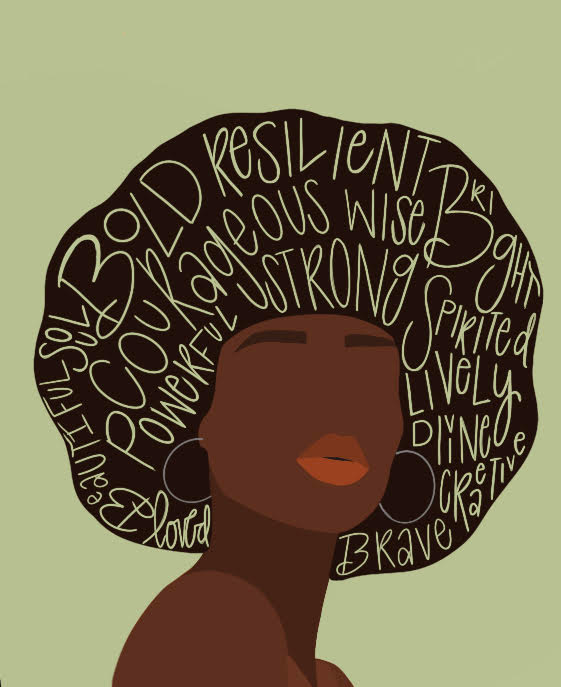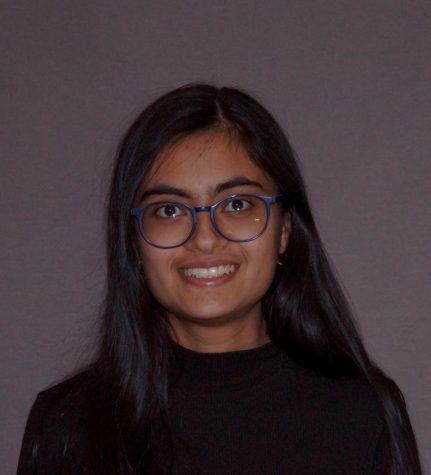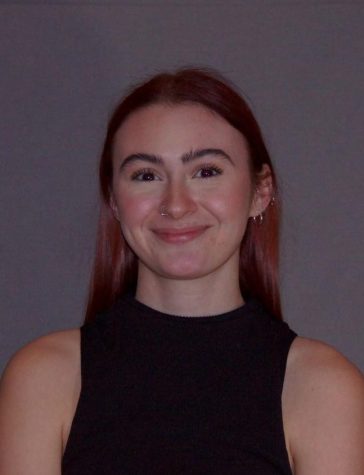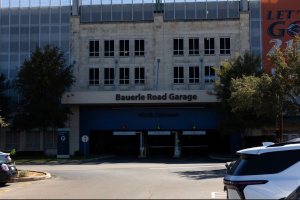BSU hosts panel discussion on Black womanhood
March 1, 2022
The Black Student Union (BSU) hosted a panel discussion titled “Black Girls Rock: A Panel Discussion on Black Womanhood” on Feb. 24. The panel discussion was a part of UTSA’s Black History Month events.
BSU President Priscilla Okolie started the event by introducing the panelists — Ashley Thompson, senior communications major with a minor in African American studies, Bria Rhoads, a senior majoring in biomedical engineering, Kemiah Owoh, a senior biomedical engineering major with a concentration in biomaterials, cellular and tissue engineering and Erica McFarland, a junior majoring in public health with a minor in communications.
Throughout the discussion, Okolie asked all four panelists to respond to a series of questions about their life and experiences.
Panelists began by talking about advice that they would give their younger selves.
McFarland emphasized the importance of personal development and wellness. Meanwhile, senior Rhoads highlighted the importance of not letting the opinions of others influence the course of life, something that Thompson agreed with.
“Don’t worry about what anybody else has to say. Be respectful, take other people’s thoughts, but … this is your life. And you only have one life to live, so don’t get caught up in other people’s opinions — what they think you should be doing with your life, where they think you should be — because this is your life. You’re the only pilot of it,” Rhoads said.
Owoh added to the discussion, explaining the importance of voicing opinions without hesitation.
“For my younger self, I would just say, voice your opinions … stand out and be present in the moment. Don’t be so passive. Just take advantage of every opportunity that’s in front of you and just really voice your opinion because that’s valuable and it matters,” Owoh said.
Okolie then asked panelists about what motivates them to meet their goals.
Rhoads and Thompson both expressed the importance of role models and representation as one of the things that motivate them.
“For me, a lot of the time, the things that motivate me is like knowing that one day I’ll get to be representation for younger Black girls and younger Black boys who may not always get exposed to seeing people in different fields,” Thompson said.
Junior McFarland explained that helping people is her primary source of motivation, adding that productivity, gaining new experiences and the “desire for better” are also important.
“I feel like one of my life purposes is to help people … I believe that’s like a priority for me. So, that’s the number one motivation, of course,” McFarland said. “I also am motivated by a sense of accomplishment and a sense of achievement.”
After identifying their sources of motivation, participants talked about how their experience as Black women has impacted the way they move through society.
Thompson talked about viewing society through a “Black lens” and evaluating the way things affect the community as a whole, while Owoh emphasized “moving strategically” through society as a Black woman and trying to look for allies.
McFarland talked about how her identity as a Black woman impacts her experience in society, as well as how she may unknowingly impact the people around her.
“Just by being myself, I have no clue who it is that I am impacting … even though that is a goal of mine, I may never really know the true impact that I will have on somebody or a group of people or a crowd in general.”
Rhoads concluded by pointing out the mental toll it takes to be a Black woman navigating through society, adding that Black women are held to a much higher standard.
“Being Black and a woman … is tiresome. At times, I am tired and I am defeated, like all people are.” Rhoads said. “It is a big deal to be Black and it is a big deal to be a woman. I’m always seeking genuine friendships because … everything’s cutthroat, everybody’s selfish … so I’m always seeking genuine friendships, genuine sisterhood.”
“The Black experience is inextricably linked to your womanhood. You can’t separate the two. You exist in every space as both and that does impact the way that you move through life, whether it is overt or covert,” Okolie added.
Panelists then talked about the pressures they face as young Black women and how they cope with those pressures.
Owoh pointed out the constant need to be socially acceptable as a significant pressure for Black women, adding that it was important to “spend time with yourself.”
“I feel like [the] pressures we face as young black women is to be palatable, to be socially acceptable to others and not necessarily for ourselves first,” Owoh said.
Rhoads agreed with Owoh’s point and further emphasized the importance of voicing opinions. Rhoads also identified failure as a major source of pressure.
“I kinda grew up in a predominantly white space as well. The high school that I graduated from, everybody loved you as long as you were like, playing sports, making the school look good, but as soon as you wanted to, you know, wanted to stand up for your voice, for your minority in school, it was a problem,” Rhoads said. “Another pressure I think is definitely failure … I feel like, as Black women, we have to be successful.”
McFarland added that she has coped by placing herself in new environments — which helps spark growth and development — while Thompson talked about the pressure Black women face to be perfect. Thompson also underscored the importance of therapy as a way to cope with these pressures.
“I definitely think going to therapy, talking to a counselor, being able to just voice everything that you’re going through to a third party is really helpful … it’s non-judgemental and I feel like it really can help free us from the shackles … that society has put on us as Black women,” Thompson said.
The panel discussion concluded with panelists giving advice for girls and women who might want to follow in their footsteps.
McFarland shared the importance of time and living in the present moment.
“I would recommend tapping into [the] present moment because that’s really all that matters … because dwelling on the past is going to impact your present, which will then impact the future that you want for yourself,” McFarland said.
Owoh pointed out the importance of speaking up and having a system of support in order to succeed. “Stand your ground, state your opinions, be decisive, speak up, have a voice and be open to communicat[ing] with others.”
Thompson also echoed a similar opinion about support, adding that it was important to keep going despite a lack of representation for Black women in several aspects of society.
“We need representation, for Black women especially, in every aspect of society. So you may feel like you’re alone doing this, but know that there’s people watching you, people who are looking up to you and just want to see you succeed,” Thompson said.
Finally, Rhoads concluded by speaking about the need to try and grab hold of opportunities, adding that it is important to ask questions. Rhoads also reiterated the importance of sisterhood and friendship.
“Nothing beats a failure but a try. You just gotta try. And when you try [and] put your best foot forward … make sure you try, cause you’re going to regret not taking that opportunity,” Rhoads said. “Say what you mean and mean what you say.”
“At the end of the day, Black women are the bedrock of not just the Black community but the community as a whole,” Okolie concluded.
Participants then answered questions from the audience about the impact UTSA has had on their life as well as their definition of womanhood and femininity.
McFarland talked about how UTSA has “enhanced [her] development and growth as an individual,” exposing her to a lot of diversity in various aspects. Thompson, on the other hand, didn’t think UTSA had a major impact, while Rhoads pointed out the lack of “safe spaces” on campus.
Owoh and Rhoads finished by talking about the importance of feeling good about yourself, while both Okolie and Rhoads highlighted the fact that womanhood and femininity are nothing but social constructs.
“Thank you again so much to everybody who has attended this event. It really meant a lot to me. This is a passion project of mine … thank y’all so much, and like Bria said, ‘Go Black.’ Support everybody Black,” Okolie concluded.








